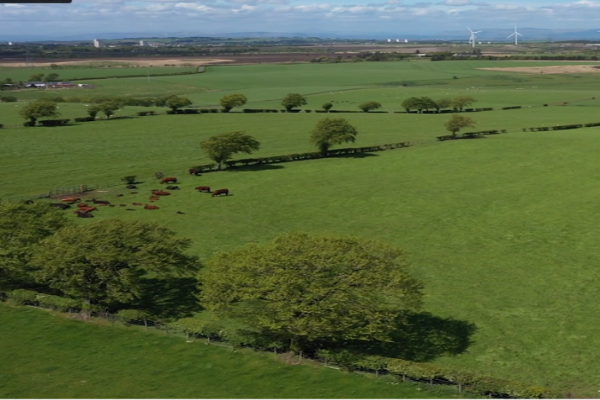Organic Farming for New Entrants
26 October 2023Next Generation Newsletter
This article is produced as a part of the FAS Next Generation Newsletter. Subscribe now to receive the full report in your inbox quarterly.
As a new entrant, you may want to consider if Organic Farming is for you.
Defining Organic Farming
Organic is basically a system of farming and food production which can deliver many benefits for wildlife, society, and the natural world. Organic farmers aim to produce high-quality food, using methods that benefit our whole food system. With the ever-increasing dangers of climate change, as well as a decline in wildlife and increase in diet related ill-health, changing our food systems to systems like organic could make a massive difference.
Organic farmers have to work to a strict set of standards; this ensures that their farms sustain the health of soils, ecosystems, animals and people. The key principles of organic agriculture are:
- Health
- Ecology
- Care
- Fairness
Certification is legally required to grow, process or market organic products, and all organic farms and companies are inspected by a certification body at least once a year.
Some questions you need to ask yourself before considering if Organic Farming is for you:-
- Do you have a source of farmyard manure/slurry on or near your own farm?
- Can you see yourself farming without relying on pesticides?
- Can you see yourself farming without chemical fertilisers?
- Could you introduce crop rotation between plant families?
- Do you have a low stocking rate, or would you be willing to reduce your stocking rate? (Max of 13.3 ewes/ha; 2.5 cows/ha)
- Do you have a bedded area in your animal housing, or could you modify existing buildings?
What You Need To Know About Organic Conversion
When converting to organic it’s important to remember that the change is not immediate, and it will take at least two years for you to achieve an organically certified system.
With conversion taking a minimum of 2 years, added to the fact that stocking numbers will be reduced, the financial aspect is particularly important to assess before converting.
For further information on organic farming, please see our Organic section on the FAS Website - https://www.fas.scot/discussion-groups/organics/
Or alternatively we have a selection of short Organic videos on our newly formed Organic playlist, which are available to view - https://www.youtube.com/playlist?list=PL8DdHOvRK_JmJmXbtvBQsE1DbCUzemV-_
AECS Funding For Organic Farms
The 2024 round of Agri-Environment Climate Scheme (AECS) for organic conversion funding opens on 1st February and you have until 10th June to submit an application. Following the removal of the area caps in 2023, there is no upper limit for land in organic conversion providing it is used for agricultural purposes. Full details on this scheme can be found at https://www.ruralpayments.org/topics/all-schemes/agri-environment-climate-scheme/
In addition, if your business is registered with Rural Payments and Services in Scotland and hold a Business Reference Number (BRN), you can also access £1,000 of specialist advice on organics from FAS to receive guidance on best practice, and accessing the organic market, including organic conversion plans and business efficiency for organic production. See https://www.fas.scot/specialist-advice/ for more details and how to apply.
By Cat MacGregor, Agricultural Consultant, Thurso Cat.MacGregor@sac.co.uk
Sign up to the FAS newsletter
Receive updates on news, events and publications from Scotland’s Farm Advisory Service

